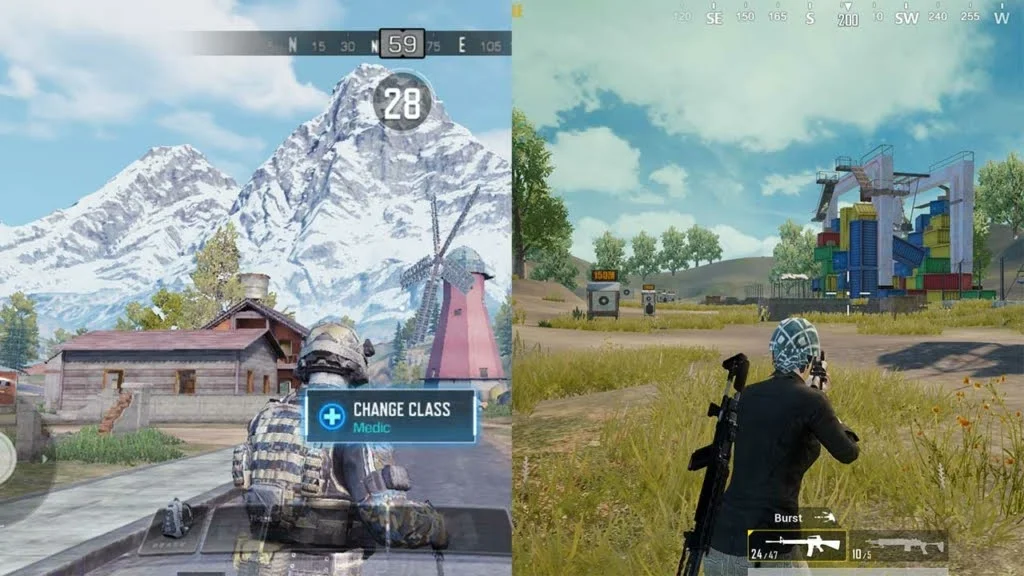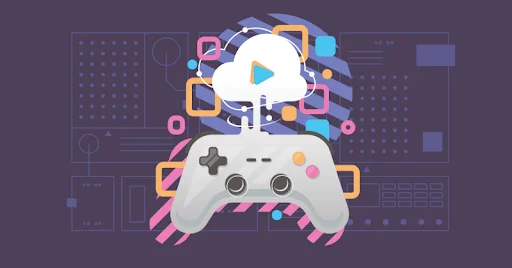Mobile gaming has experienced an unprecedented rise over the past decade, pushing its boundaries and broadening its audience. With smartphones becoming more powerful, it’s easy to wonder: can mobile games actually replace classic computer games? In this article, we’ll explore the growth of mobile gaming, the technological challenges it faces, and whether mobile games can genuinely take over the gaming world as we know it.
The Surge in Mobile Gaming

The evolution of mobile gaming has seen rapid growth in recent years. Smartphones are more advanced than ever, with processing power rivaling that of some gaming consoles. Popular games like PUBG Mobile, Fortnite Mobile, and Call of Duty Mobile offer experiences similar to their console and PC counterparts. Moreover, mobile gaming has become more accessible, with a wider reach than ever before, giving players the ability to game on-the-go. However, can this ever replace the in-depth experiences offered by traditional gaming systems?
Technological Advancements and Limitations
While mobile devices have significantly improved in terms of graphical capabilities and processing power, they still face some inherent limitations when compared to traditional PCs. PCs benefit from larger screens, more robust hardware, and the potential for higher frame rates, offering a more immersive experience, especially for competitive gaming. However, mobile games are continuously advancing, and future innovations could blur the line even further. Games on mobile devices are becoming increasingly sophisticated, but the question remains: can they match the level of engagement that classic computer games provide?
For instance, while mobile games are becoming more complex, their limited controls and smaller screens still pose challenges when compared to the precision and expansive interfaces offered by gaming PCs. With evolving technologies like cloud gaming and advanced mobile graphics, there may be potential for mobile games to narrow this gap. Some platforms, like csgo trading sites, are beginning to implement mobile versions of their games, reflecting a crossover between both formats. These advancements suggest that the gap between mobile and PC gaming could eventually close, but the current differences still make traditional PC gaming a more immersive and precise experience.
The Impact on Gamers and the Industry
The rise of mobile gaming has not only changed the way games are played but also how they are consumed. With the convenience of smartphones, more players are engaging in gaming, leading to a more expansive audience for the industry. Games like Candy Crush and Clash Royale have proven that gaming doesn’t need to be confined to high-end PCs or consoles. These casual games appeal to a broad demographic, contributing significantly to the increasing revenue in the gaming sector.
On the other hand, classic PC games still maintain a loyal following. Titles like League of Legends, Counter-Strike, and World of Warcraft offer deep and complex gameplay, which mobile games are often unable to match. The competitive gaming scene, especially esports, remains heavily reliant on PC and console gaming, with high-profile tournaments showcasing the capabilities of powerful gaming systems.
The battle between these two platforms, however, may only be just beginning. As mobile hardware continues to evolve, developers are pushing the boundaries of what mobile games can achieve. Some mobile games, such as PUBG Mobile and Call of Duty: Mobile, are already offering experiences that rival their PC counterparts. Cross-platform play is also becoming more common, allowing players on different devices to compete together, further blurring the lines between mobile and PC gaming.
Ultimately, while mobile gaming is growing rapidly, it has yet to fully replace traditional PC gaming. Both platforms have their strengths, and as technology advances, they may continue to coexist rather than one completely overtaking the other.
The Role of Cloud Gaming

Cloud gaming is likely the future of mobile gaming. With cloud-based platforms like Google Stadia, NVIDIA GeForce Now, and Xbox Cloud Gaming, the power of a traditional PC is now available on mobile devices. Cloud gaming allows players to stream high-quality games without the need for expensive hardware. This development could level the playing field for mobile gaming, making it possible for mobile devices to run games that would traditionally require a high-end computer.
As this technology advances, mobile gaming could significantly enhance its appeal to gamers who are accustomed to the more immersive experiences of PC gaming. Reduced latency, improved internet speeds, and optimized streaming services will play a crucial role in making cloud gaming more viable. Additionally, developers are adapting their games to be more mobile-friendly while retaining depth and complexity. Features like customizable touch controls and support for external controllers are helping bridge the gap between mobile and traditional gaming.
While cloud gaming holds great potential, challenges such as internet stability and data consumption still need to be addressed. However, as infrastructure improves, mobile gaming could become a true competitor to PC gaming, offering convenience without sacrificing quality.
Conclusion
Mobile gaming has come a long way and continues to improve. While it may not completely replace classic computer games in the near future, mobile gaming is becoming a formidable force in the gaming industry. The increasing technological advancements, coupled with the convenience of mobile gaming, ensure that this sector will continue to evolve. Classic PC games, however, offer a level of depth and experience that mobile games may not fully replicate—at least not yet. As both platforms continue to evolve, we may find that rather than one replacing the other, they will coexist, offering players different experiences based on their preferences.





